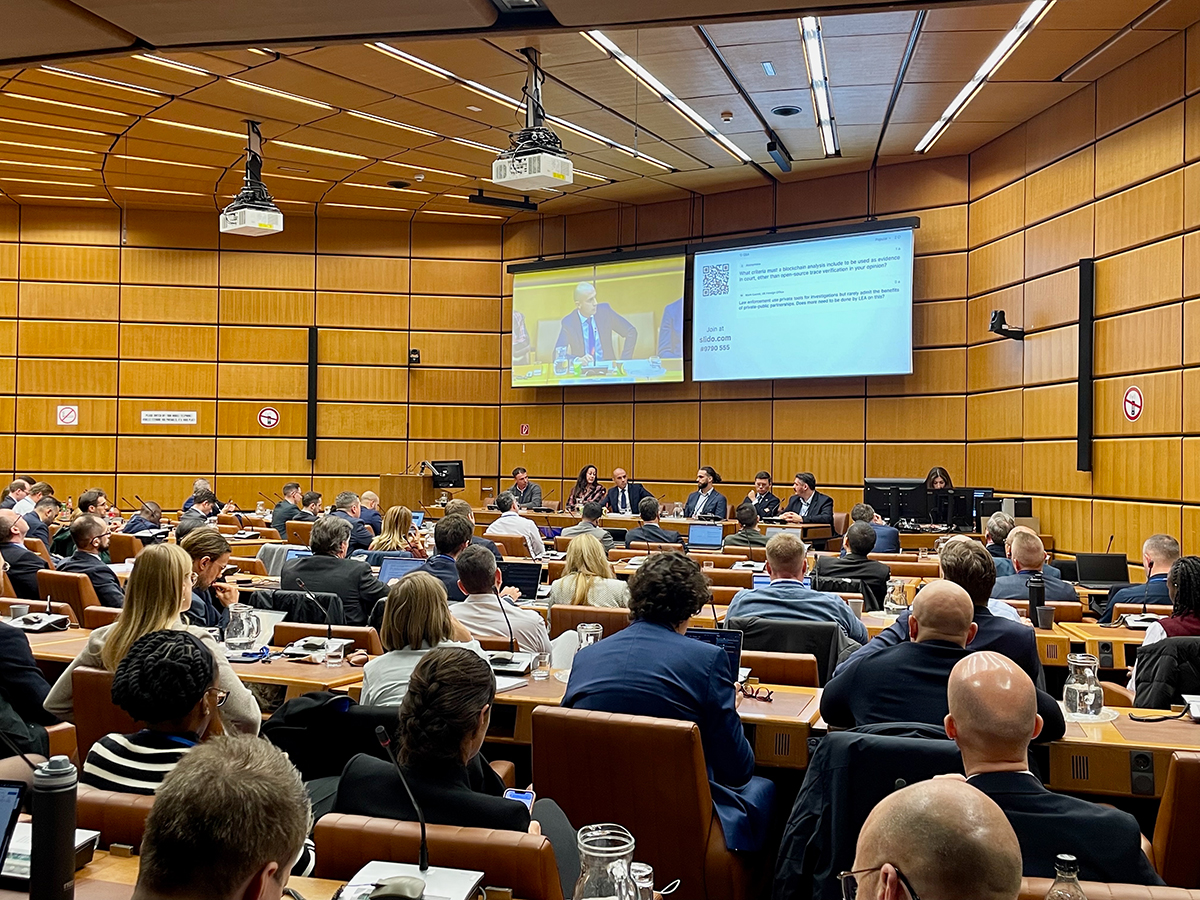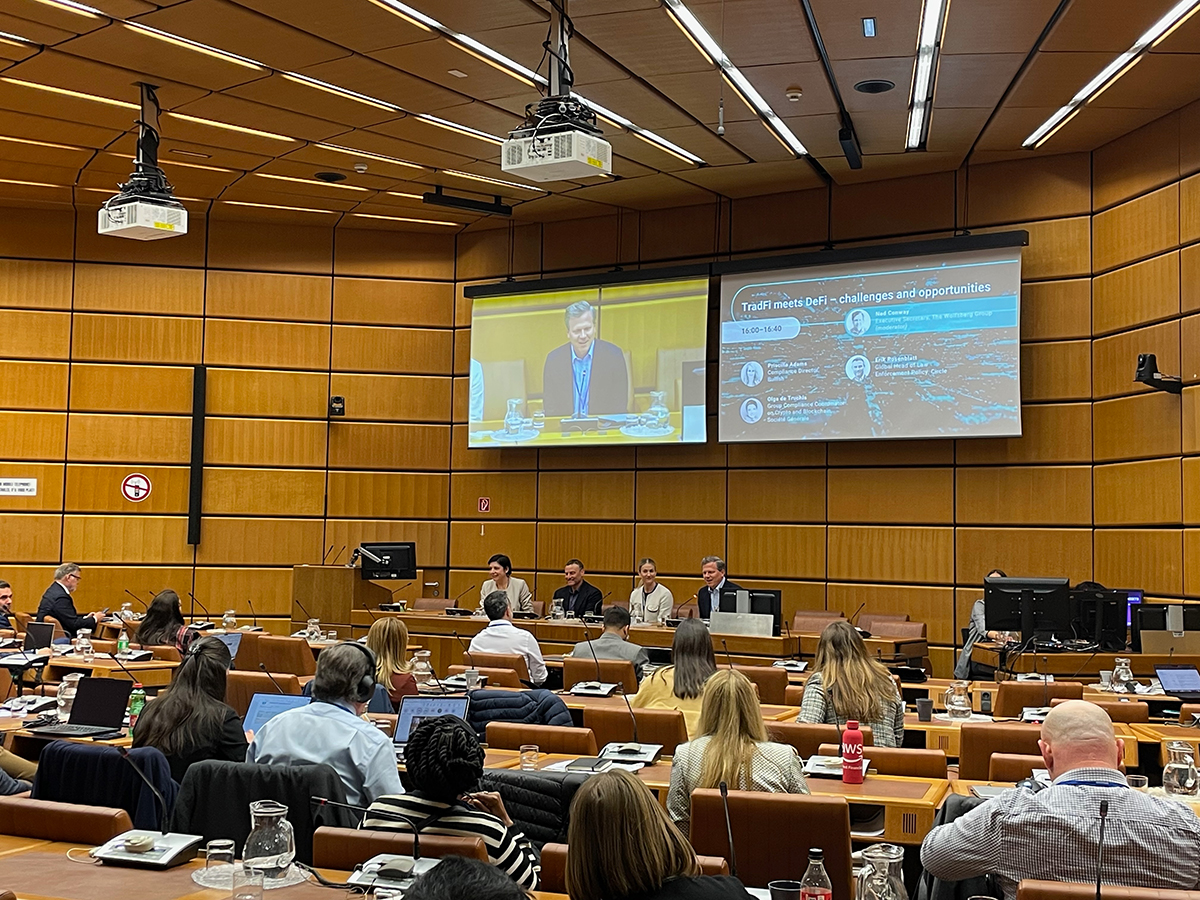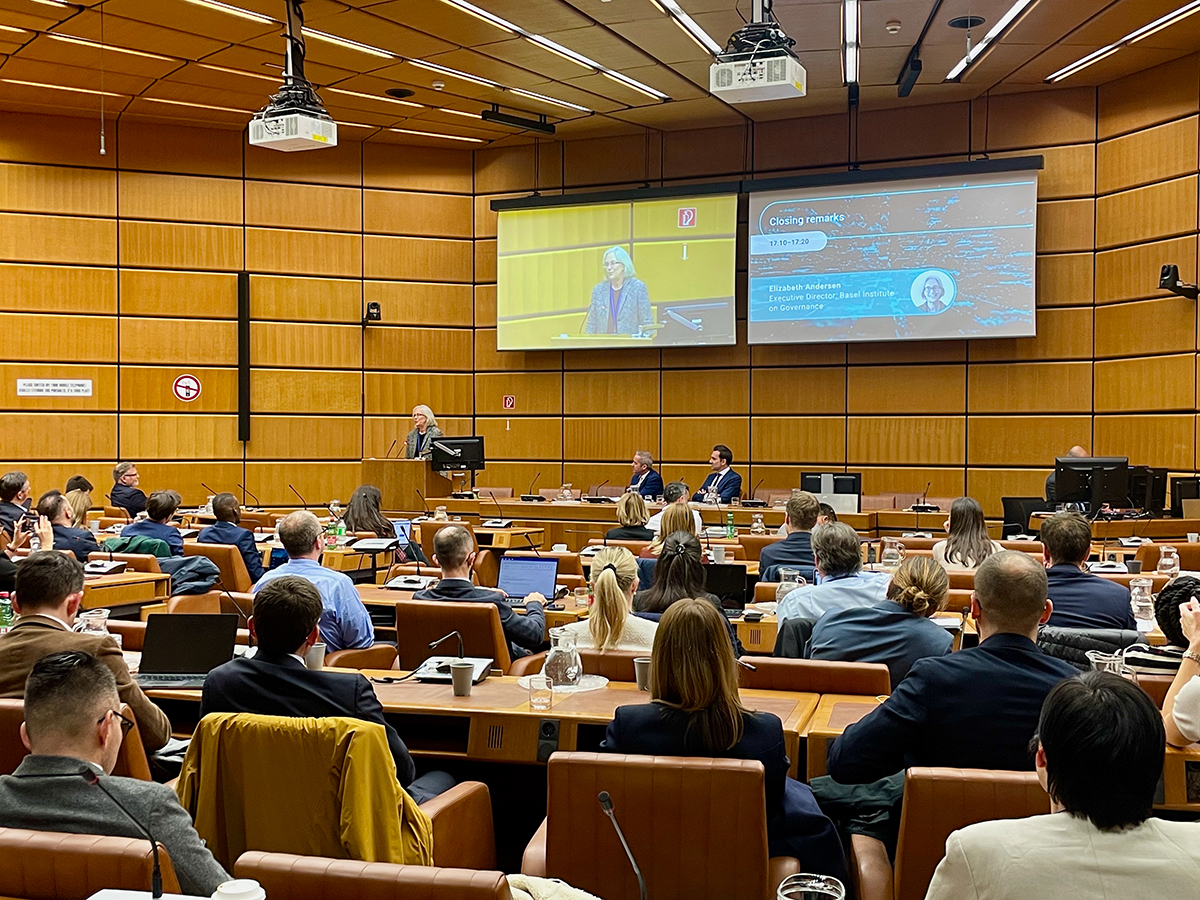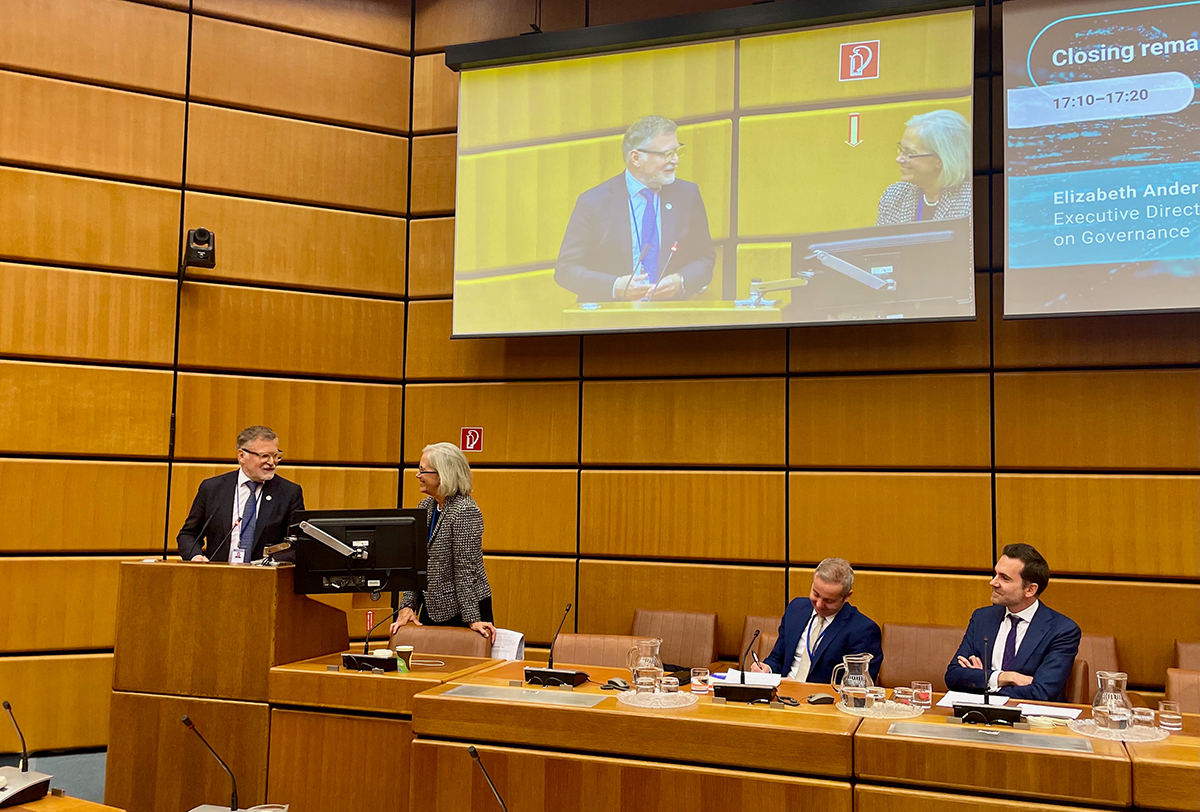Global experts advance the joint fight against crypto-enabled crime
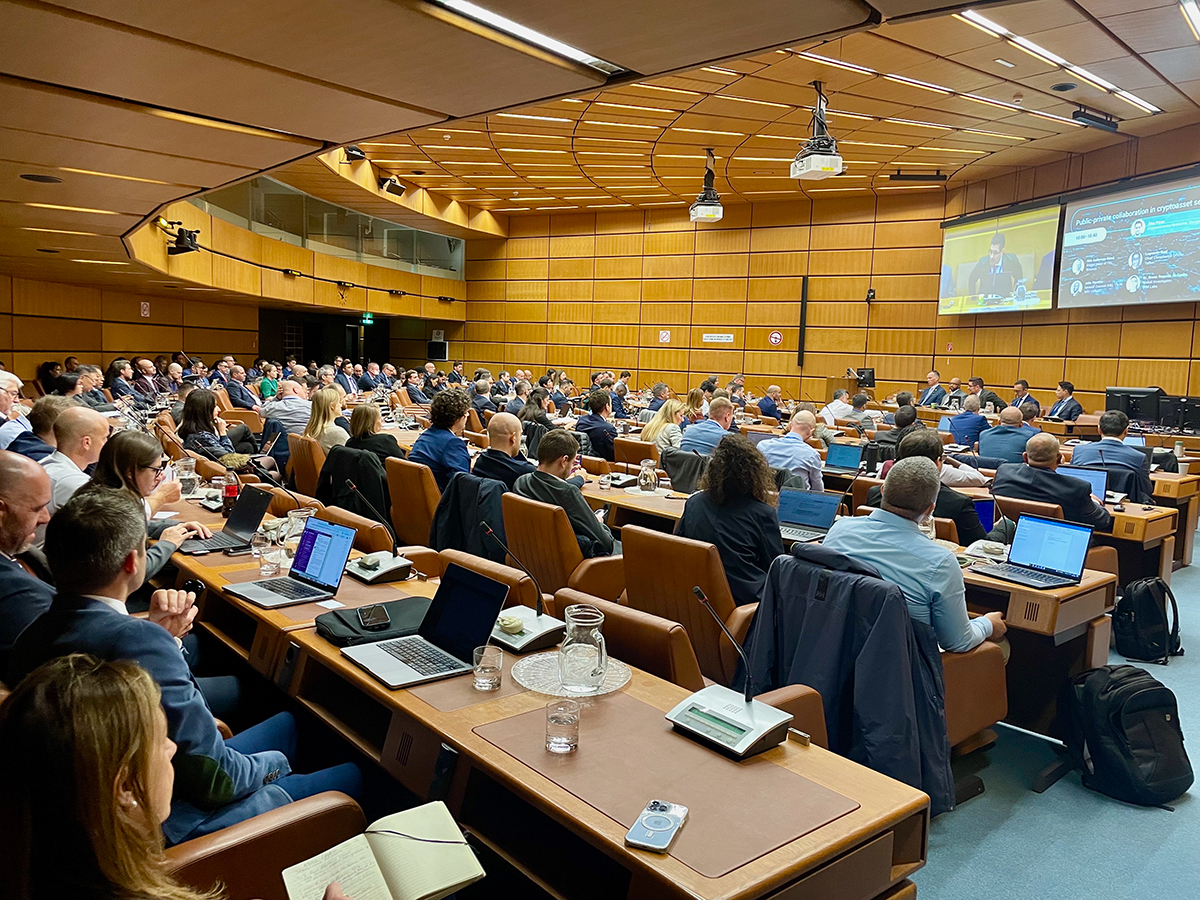
Criminal use of crypto is becoming increasingly professionalised, but so too is the global response. Participants at the 9th Global Conference on Criminal Finances and Cryptoassets emphasised three priorities: developing common standards, deepening cooperation and investing in capacity.
These are essential if authorities and industry are to keep pace with evolving threats and recover illicit cryptoassets at scale.
Criminal use of crypto becomes more professional
Participants at the event in Vienna – jointly organised by Europol, UNODC and the Basel Institute on Governance – gained fresh insights into the evolving ways that cryptoassets and blockchain technology are being misused for crime.
The conference on 28–29 October 2025 brought together more than 250 in-person participants and more than 1,000 online from all over the world, including law enforcement, prosecutors, regulators, researchers and leading blockchain intelligence firms.
The growing sophistication of criminal tactics poses risks not only to the crypto sector and to victims of scams, but to society at large, including through serious crimes such as drug trafficking, terrorism financing and sanctions evasion.
Burkhard Mühl, Head of Europol's European Financial and Economic Crime Centre (EFECC), emphasised:
“The misuse of crypto and blockchain technology for criminal purposes is becoming increasingly sophisticated, complex and organised. Investigating these crimes places a significant burden on the law enforcement agencies of EU Member States. Europol will therefore continue to invest in innovation, technology and cooperation with private partners, to fulfil its mandate of supporting Member States in complex and international investigations.”
Professionalising the response
Law enforcement and partners in the private sector and academia are rapidly advancing their ability to counter the threats posed by sophisticated crypto-related crimes and money laundering. Advanced tools are reducing reliance on manual tracing, while a host of successful cross-border operations show the power of collaboration.
Research and reliable data on crypto’s use for criminal purposes are also crucial for governments to assess risks and respond appropriately.
John Brandolino, UNODC Director, Division of Treaty Affairs, gave one example referencing a panel on transnational scams, illicit marketplaces and money laundering networks:
“Our research into scam centres in Southeast Asia is giving governments and law enforcement the insights they need to disrupt these fast-growing transnational threats.”
Yet gaps remain: in legislation, in implementation, in capacity. Addressing these will require, among others, harmonised and evidence-based standards for blockchain investigations and intelligence – the topic of one of this year’s breakout sessions.
Cooperation across borders and sectors
The borderless nature of blockchains means criminal proceeds can cross the globe in seconds, while formal cooperation between authorities can still take days or weeks. Faster inter-agency channels are vital, said participants, as well as closer coordination between investigators and prosecutors.
Public-private partnerships have been critical to disrupting illicit activity on the blockchain, but must be enhanced and scaled. This was a key theme on the first day, dedicated to cross-sector collaboration.
A side event led by the Wolfsberg Group also highlighted the importance of private-to-private cooperation. Ned Conway, Executive Secretary of the Wolfsberg Group, noted:
“As traditional and decentralised finance merge, clearer channels for information-sharing between banks and virtual asset service providers will greatly strengthen efforts to detect and disrupt illicit finance.”
Building capacity through training and peer learning
Crypto is now a common feature of financial crime investigations, yet many agencies still lack the skills and resources to pursue leads or recover assets. Developing specialist teams and upskilling frontline officers is essential.
Elizabeth Andersen, Executive Director of the Basel Institute on Governance, said:
“There’s a huge opportunity here. Through hands-on training and peer learning, countries can build the capacity to detect and trace cryptoassets linked to crime, and to recover them for the benefit of victims and wider society.”
A global platform and community
As crypto use expands and evolves, the joint Global Conference remains a unique platform for dialogue and practical cooperation.
By developing clear standards, enhancing cooperation and building capacity, we can collectively ensure financial innovations are harnessed for the public good while preventing their abuse by criminals.
Learn more
- For more information about the conference, check the event page.
- A selection of recordings are available on YouTube.
- Designing robust cryptoasset frameworks: Practical takeaways from international regulators and supervisors – arising from a breakout session at the Conference.
- Developing blockchain intelligence standards and interoperability: a critical need to fight financial crime in the digital age – arising from a second breakout session at the Conference.
- Advancing trust and standards between banks and virtual asset service providers – lessons from Wolfsberg Group events at the 9th Global Conference

